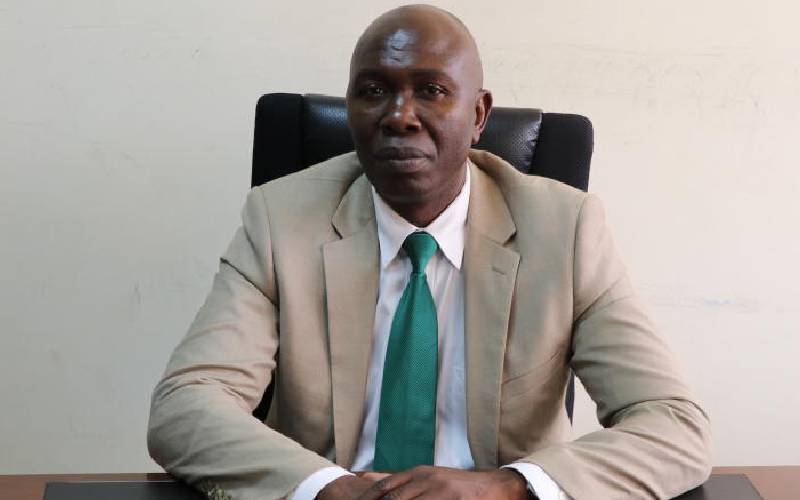Capital Markets Authority Acting Chief Executive Wyckliffe Shamiah. [Standard] Regulators have continued to blame each other over the doomed Sh2 billion Imperial Bank bond even as investors’ six-year wait for answers continues.
While appearing before the Finance and Planning Committee recently, Capital Markets Authority (CMA) Chief Executive Wycliffe Shamiah sought to shift the blame to the Central Bank of Kenya (CBK) and the Kenya Deposit Insurance Fund (KDIC) for the delay in refunding bondholders’ money.
In 2015, Imperial Bank issued a corporate bond to support its working capital and liquidity position. READ MORE
However, before the listing of the bond at the Nairobi Securities Exchange, the lender was put under receivership due to fraudulent activities that had been taking place at the lender since 2006.
“But for us to approve this bond, because we are regulators, we asked for Central Bank of Kenya to indicate to us if there were any issues around the bond issuance. They gave us a no-objection letter as primary regulators of banks,” Shamiah told lawmakers, following an accusation by Garissa Town MP Aden Duale that the regulator had failed to protect investors.
The CMA boss noted that having met all the conditions, together with the no-objection from CBK, they proceeded to give Imperial Bank approval to raise the Sh2 billion targeted through the issue.
“But because they were placed under receivership before the money was put to use, we believe this money was intact at the point they were placed under receivership,” added Shamiah.
When he was pushed by the Chairperson of the Finance Committee Gladys Wanga to state if he “believed” or “knew” the money was intact, he answered in the affirmative.
However, KDIC Chief Executive Mohamud Ahmed Mohamud contradicted Shamiah’s claims.
“There is no money they (CMA) can tell us to pay. Because the bond money was for capitalisation of the bank, it was used. There is no such thing as a separate bank account for the bond cash that we found at Imperial Bank,” said Mr Mohamud.
He insisted that once the assets are recovered, the bondholders, just like other creditors, will be paid after settling matters with depositors.“CMA cannot tell us to pay because our Act is very clear. Bond money has to be treated as creditors,” said Mohamud. He dismissed claims by CMA that the bond, which was in the receiving bank (ironically, Imperial Bank), was still there. “The money is in form of assets. One thing Kenyans […]
